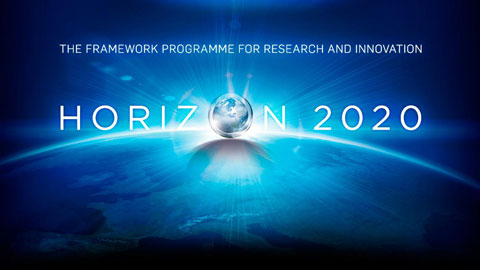UAB to Coordinate European "Innovative Training Network" Project

27/01/2015
Under its Innovative Training Network programme, the European Commission has recently awarded a European Training Network entitled “Smart ELECTrodeposited Alloys for environmentally sustainable applications: from advanced protective coatings to micro/nano-robotic platforms (SELECTA)” to Professor Jordi Sort, ICREA Professor at the Physics Department of the Universitat Autònoma de Barcelona, UAB, and Head of the Group of Smart Nanomaterials, Nanomechanics and Nanomagnetism, with a total funding of €3.2 million for the period 2015-2018. This is the first time the UAB has been awarded a project of these characteristics, which has an acceptance rate for these types of proposals of around 10%. Hence, the network will reinforce the role of UAB in leading outstanding educational and research programmes in the Horizon 2020 European Framework.
The SELECTAnetwork is a highly inter-disciplinary initiative which has the primary goal of training young researchers in the field of smart electrodeposited metallic alloys suitable for environmental / sustainable development applications. The network encompasses the fabrication and in-depth characterisation of innovative protective coatings, resilient micro/nano-electromechanical systems, and wirelessly actuated micro/nano-robotic platforms for cutting-edge environmental applications. The project will explore new types of electrodeposited alloys (based on iron, copper and aluminium; free from hazardous and scarce raw elements), with tunable structure (amorphous, nanocrystalline), morphology (dense, nanoporous) and geometry (films, micropillars, nanowires), to meet specific technological demands (high wear/corrosion resistance, superior magnetic properties or hydrophobicity).
The project aims to integrate technological progress with environmental sustainability concerns, which is one of the major “Societal Challenges” listed in the Horizon 2020 Work Programme. Several disciplines (physics, electrochemistry, engineering, environmental sciences, biology and robotics) converge together to provide a holistic approach to accomplish the SELECTA goals.
The project brings together 9 beneficiaries (University of Cambridge-United Kingdom, IFW-Dresden-Germany, Istituto Nazionale di Ricerca Metrologica-Italy, Chalmers University of Technology- Sweden, University of Kragujevac-Serbia, University of Ioannina-Greece, Vilnius University-Lithuania, Happy Plating-Austria and UAB), plus 6 partner organisations (including 4 private companies), belonging to 10 EU Member States (plus Switzerland and Serbia).
Special efforts will be devoted to bridge fundamental science with commercialisation of the research outcome. The complementarities among partners will render a high-level, multi-faceted educational programme. World-class research will be combined with unique training opportunities in soft skills, such as career planning, dissemination, intellectual property rights, entrepreneurship or management. The network aims to provide highly-qualified specialists able to face future professional challenges in either Academia or Industry in an independent manner.